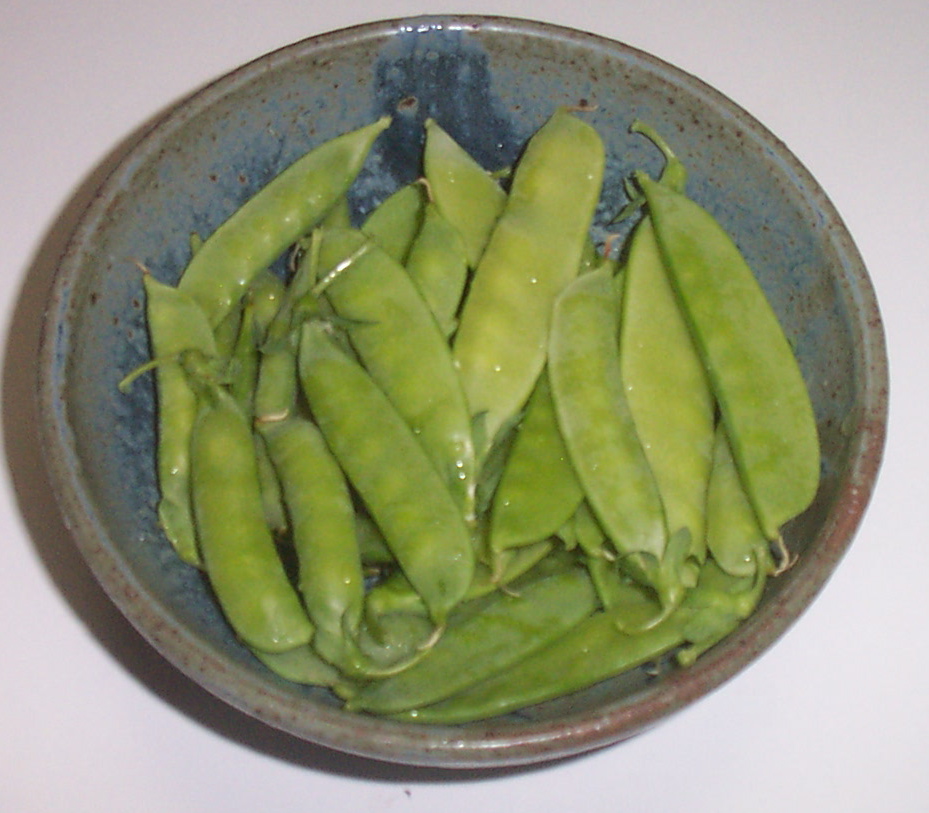My youngest child, Roy, is going through a growth spurt. Based on what my mom says, it will last at least eighteen years. He was ravenous at lunch today, literally inhaling everything I put on his plate. This included the snow peas from our garden. On a warm summer day, or any day for that matter, they’re a delicious snack. Crisp, sweet and juicy. These aren’t the dry, limp ones you sometimes find at the grocery store. We literally picked these off the vine a few hours ago.
To make it educational and fun, I held a pod up to the light so he could see the peas inside. And of course, he counted them. We then cracked open the husk, and he gobbled the peas up like candy. He also ate the pods whole. There were a few bigger ones that had been on the vine longer and swelled up. The skin was a little chewy and tough but still edible. My middle son, Bruce, came to the table and saw that we had eaten up a ton of snow peas, so he grabbed a mixing bowl and went outside to pick more. While Bruce was picking peas, he was munching as he went.
Having a garden connects us to our food, instead of always going to the grocery store where shelves and counters are magically re-stocked with fresh produce. My boys actually see where their food comes from. Plus they invest time planting, weeding, watering, harvesting, etc.
Nutritionally, peas are a good source of fiber, protein and carbohydrates. Remember that plant cell walls are made primarily of cellulose. Unlike cows, horses, sheep, goats, etc, we humans don’t have the enzyme to break down cellulose. So instead of always reaching for your high fiber cereal, which often tastes like cardboard or has lots of other ingredients to make it taste better, try reaching for some peas. Protein in vegetables? Yes. We often think of meat, poultry and fish as our top protein sources. But let’s not forget our beans, legumes, lentils and peas. Snow peas are 25% protein. Plus they are cholesterol and fat free. Carbohydrates are our primary energy source. Why not choose a food that is low on the glycemic index and won’t make you crave more carbohydrates? Snow peas are also an excellent source of vitamins A, C and K and minerals iron and manganese.
So Eric, are you saying that I should eat snow peas every day? No. Like many foods, they have value. And it’s fun to eat what’s in season. They offer a variety to an otherwise limited and boring diet. For example, when our zucchini are ready to pick, we cook Zuccanoes (Stuffed Zucchini). When the tomatoes are ready, we toss them in salads and make Salsa. Granted we don’t have a long growing season, but it makes cooking and eating all the more satisfying. Be sure to try my all-time favorite soup recipe Split Pea Soup.

